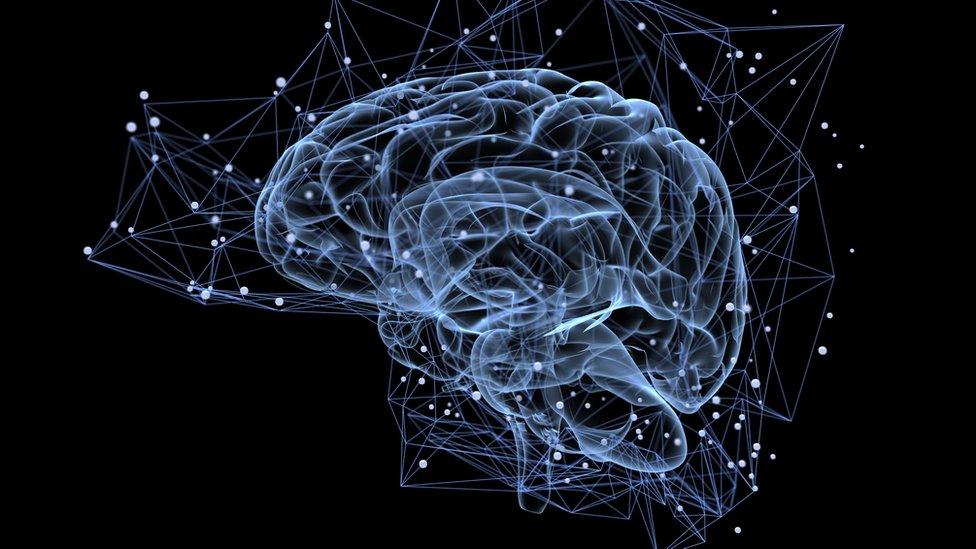MND: Hundreds climb Camlough mountain for Armagh woman
- Published
A community comes together to support Newry woman with motor neurone disease
"We were loving life and out walking every day, but then Donna noticed a slight slur in her speech."
Donna McCoy Sloan was diagnosed with Motor Neurone Disease (MND) last March.
On Saturday, former RTÉ News correspondent Charlie Bird scaled Croagh Patrick following his diagnosis of MND to raise funds and awareness.
In south Armagh, 165 miles away, hundreds climbed the 423m (1,388ft) high Camlough mountain, with Donna as their motivation.
Donna is now in a wheelchair and communicates through a special tablet-like device.
According to her husband, Anthony, change came quickly just as the first coronavirus lockdown began.
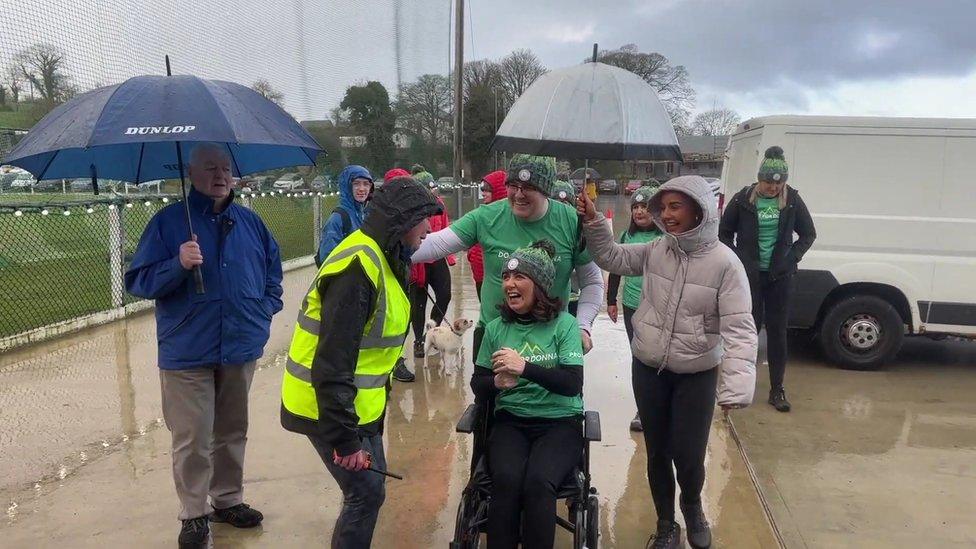
Donna says the walk has given the family a lift
"Whenever lockdown happened we were out walking every day," he said.
"Baking scones and enjoying life. Wondering if this was what our retirement would be like. If it was, we couldn't wait."
'A bomb went off in our lives'
When Donna's speech started to slur, Anthony said they went to see their GP.
"The slur developed into more and she stumbled once or twice and lost her balance. Then she started to fall. We went through the investigation process which was long and arduous."
For Donna's daughter, Ciara, this process was upsetting for the entire family.
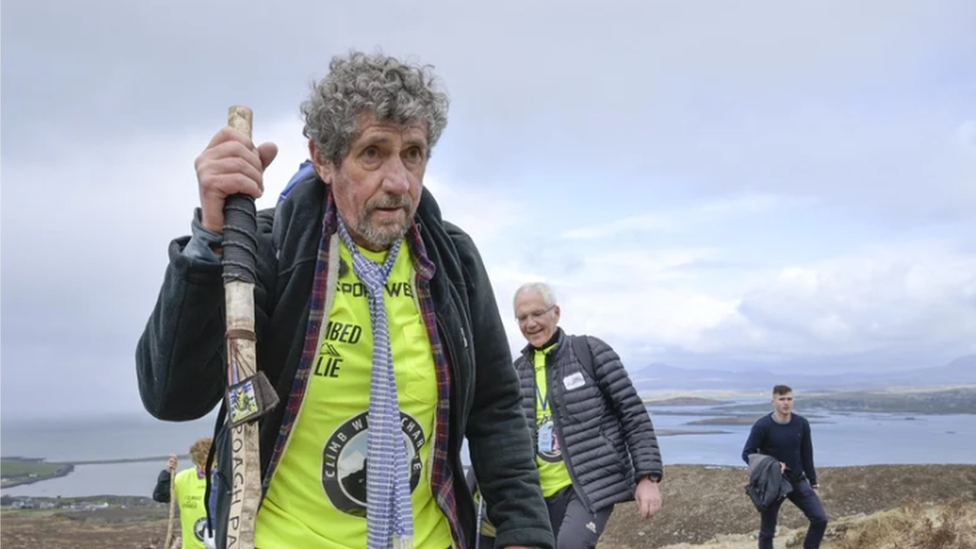
Also climbing on Saturday was former RTÉ News correspondent Charlie Bird, who scaled Croagh Patrick
"It was so hard for mummy to go through all of those tests," she said.
"Covid delayed some of it but the tests went on for up to a year.
"We got to March last year and we received a diagnosis then. It was just like a bomb went off in our lives."
MND affects the brain and nerves, eventually stopping muscles functioning.
For those treating MND, like Professor Orla Hardiman, the search for a cure goes on.
Prof Hardiman is a consultant neurologist at Beaumont Hospital in Dublin and also professor of neurology at Trinity College Dublin
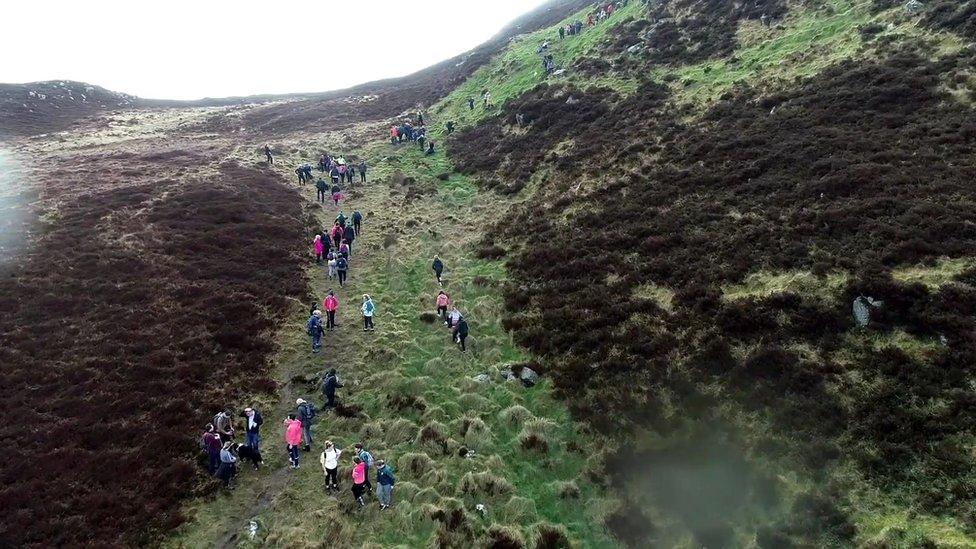
Donna motivated a crowd to climb Camlough mountain
"Motor Neurone Disease is a neurodegenerative condition so it is part of the family of conditions where part of the brain stops working and begins to degenerate and for motor neurone disease it is mostly the nerves that control voluntary movement," she said.
"In terms of the number of people who develop it each year, in the Republic it's around 140 and in Northern Ireland it's about a third of that - around 30-40 new patients per year.
"The life expectancy is, on average, about three years from the first symptom."
'Right drug, right person, right time'
Prof Hardiman is currently involved in a Europe-wide study that hopes to make major breakthroughs.
"I think over time we will find treatments that will slow it down. I've been in the field for 30 years now," she said.
She added: "We are beginning to pick away the different subgroups of the different types of Motor Neurone Disease and we've just initiated a very large project called Precision LS.
"We will identify as many people across Europe and take detailed investigations of them and we will store all of that information on a large database and then we will interrogate these data that we have obtained.
"We are excited that this is the way that we will be able to sub categorise people so that we can get the right drug into the right person at the right time."
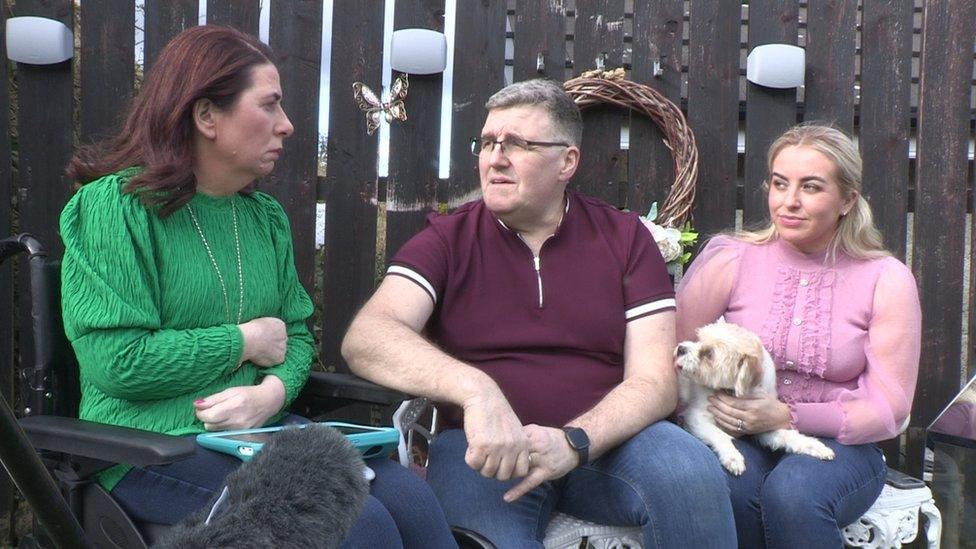
Donna and her family say Covid delayed some of her tests
Donna's fight will continue but she says she has been helped by the support of family and friends.
"The response to the walk has been so positive. We live in such a great community. It has given all of us such a lift," she added.
Related topics
- Published7 March 2022
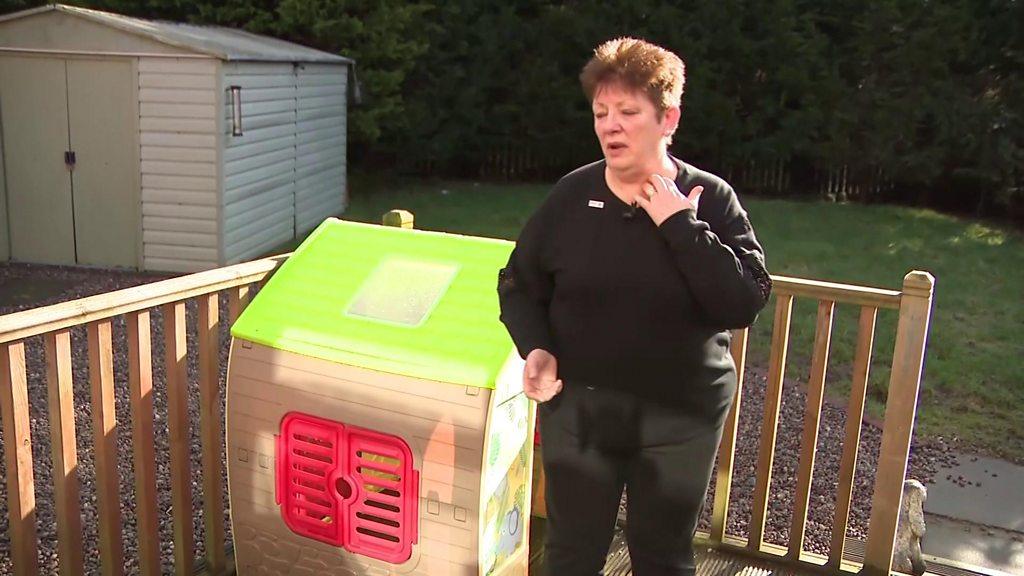
- Published20 April 2018
